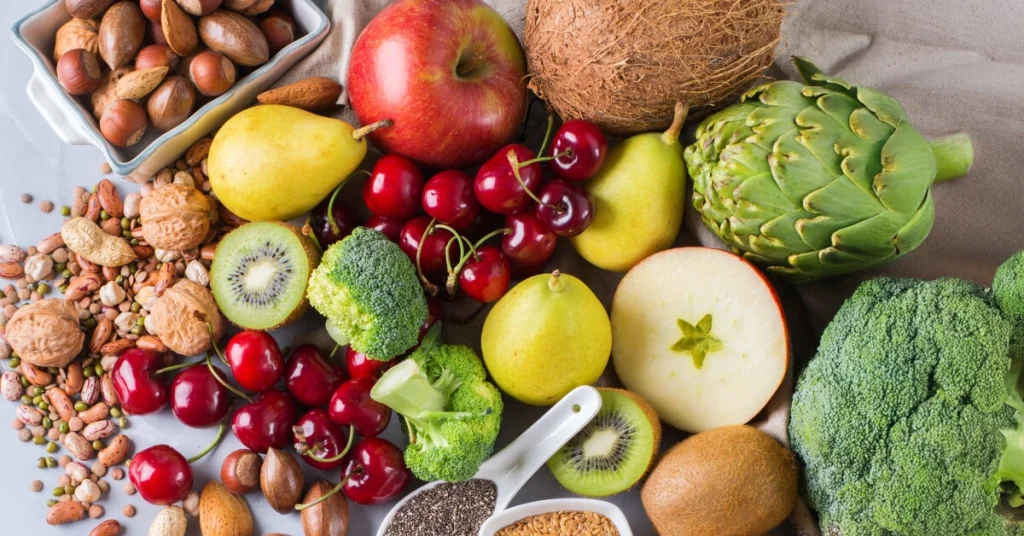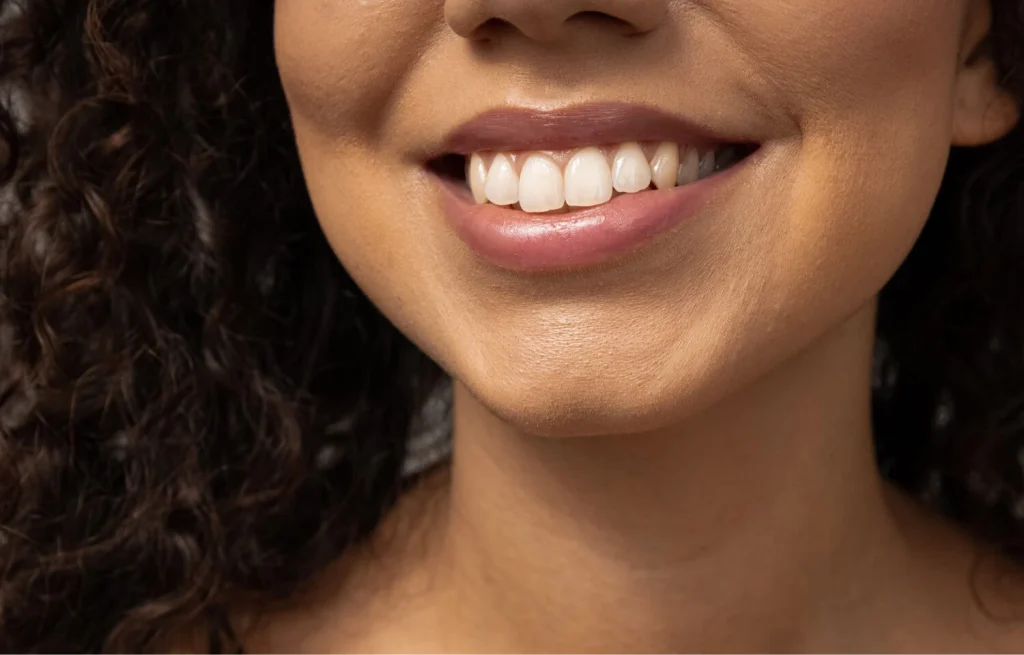How Chewing Food Improves Your Dental Health
1 Feb 2025
The simple act of chewing your food properly could be your secret weapon for better dental health. Most people focus on brushing and flossing but need to recognize how their eating habits affect their teeth and gums. Chewing your food well serves as a significant component of optimal oral health, beyond just simple digestion.
Why Should You Chew Your Food Well?
When you chew thoroughly, your body’s natural saliva production increases. Saliva is crucial in protecting tooth enamel and combating harmful mouth bacteria.
This process not only strengthens your oral immune system but also improves gum health and overall oral hygiene. Proper chewing habits are the foundation of dental wellness, working in tandem with regular professional check-ups to maintain high standards of oral health.

The Role of Chewing in Cavity Prevention
Your mouth’s natural defense system plays a significant role in cavity prevention, and proper chewing activates essential digestive proteins in saliva that begin breaking down food particles. Active chewing makes your salivary glands produce up to 12 times more saliva compared to rest. This increased saliva production becomes your mouth’s primary defense against tooth decay
Your saliva contains powerful components that protect your teeth:
- Minerals like calcium and phosphate that rebuild tooth enamel
- Bicarbonate that neutralizes harmful acids
- Natural antibacterial compounds that fight decay-causing bacteria
- Proteins that form a protective layer on your teeth
Sugar-free gum or crunchy foods like apples and carrots do more than just clean your teeth mechanically. The increased saliva flow maintains a pH level above 5.5 in your mouth and prevents enamel dissolution. This process, known as remineralization, helps repair early stages of tooth decay naturally.
The benefits go beyond cavity prevention. Saliva production from chewing removes food particles and bacteria, which helps maintain a balanced oral microbiome. These natural processes support your dental health, but regular check-ups with your dental professional ensure optimal cavity prevention and early detection of potential problems.
Gum Health and Chewing

Proper chewing does more than prepare food for digestion – it serves as a vital exercise for your gum health. Good chewing gives your oral tissues a workout and boosts blood circulation throughout your gums and periodontal structures.
Your gums get several benefits from chewing:
- Blood flows better to periodontal tissues
- Gum tissue becomes stronger and more resilient
- Natural cleansing of gum surfaces improves
- The immune response gets stronger for better protection
The physical motion of chewing triggers special immune cells called Th17 cells in your gum tissue. These cells play a vital role in protecting your mouth against harmful bacteria and fungi. Good chewing doesn’t just clean your mouth mechanically – it supports your oral immune system actively.
Regular chewing helps maintain the perfect acid balance in your mouth that your gums need to stay healthy. This balance supports your saliva’s natural antimicrobial properties and creates an environment where your gums thrive. But if you feel any gum sensitivity while chewing, you should get it checked by a dental professional to ensure good gum health.
A detailed oral care routine that has regular professional check-ups and cleanings makes proper chewing habits more effective.
Chewing and Overall Oral Hygiene

Effective chewing complements your oral hygiene routine by naturally cleaning your teeth and gums. Pairing this with professional care enhances the impact on your overall oral health.
You can add these natural oral cleaning methods to your daily routine:
- Crunchy fruits and vegetables like apples, carrots and celery
- Tongue scraping to remove bacteria and freshen breath
- Oil pulling with coconut oil for added antimicrobial benefits
Fluoridated water plays a vital role in your oral hygiene. It washes away food particles and keeps your saliva at the right levels. Oil pulling, an ancient practice that uses coconut or sesame oil, can help with sensitivity and reduce plaque buildup if you do it right.
Traditional methods like tongue scraping remove bacteria and food debris while making your breath fresh. These natural approaches create a complete oral care routine that helps your dental health when you combine them with proper chewing habits.
Note that these natural methods work best among other regular professional dental care practices. Your dentist can give you tailored advice on how to add these techniques to your oral hygiene routine.
Incorporating Better Chewing Habits

Better eating habits begin with simple changes that improve your digestion and dental health. A “distraction-free diet” means you focus only on your food during meals, away from screens and other distractions.
These practices will help you chew better:
- Take smaller, manageable bites
- Chew each mouthful at least 32 times.
- Put your utensils down between bites
- Serve food on a plate instead of eating from packages
- Pick one meal each day to practice mindful eating
Mindful eating also enhances your awareness of textures and flavors while boosting oral hygiene and digestion. Avoid the long-term effects of not chewing food properly by maintaining good habits and visiting your dentist regularly.
Your meals taste better in a quiet space, away from your desk or workspace. The silence might feel strange at first. You can take a few minutes to check messages before meals, then give your food your full attention. Note that good chewing habits work best with regular dental check-ups to keep your oral health in top shape.
Conclusion
Good chewing habits are essential for maintaining excellent dental health. By increasing saliva production, strengthening gums, and reducing harmful mouth bacteria, thorough chewing supports a healthy oral immune system and protects tooth enamel. These natural processes, combined with mindful eating and professional dental care, create a strong foundation for lifelong oral health.
FAQs
How does chewing food contribute to dental health?
Chewing foods that are crunchy, such as apples, carrots, and celery, requires more effort which increases saliva production. This saliva helps neutralize the bacteria responsible for tooth decay. The natural abrasiveness of these foods helps remove food particles stuck between teeth, massage the gums, and cleans the spaces between teeth.
Why is thorough chewing crucial for oral health?
Properly chewing food is essential as it breaks down large food pieces into smaller ones, enhancing the digestion process. This increased surface area of food particles facilitates easier and more effective nutrient breakdown and absorption in the body.
Can chewing help strengthen your teeth?
Yes, chewing, particularly gum, during activities like running can be beneficial. It stimulates saliva production, which neutralizes harmful acids and strengthens the tooth enamel, thereby improving oral health during physical activity.
How does a healthy diet benefit your dental health?
Eating a diet rich in fiber from fruits and vegetables not only stimulates saliva flow but also provides a natural defense against cavities and gum disease. Saliva helps mitigate the damaging effects of acids and enzymes on your teeth after consuming sugary or starchy foods.
Can chewing help prevent cavities?
Yes, chewing stimulates digestive proteins and minerals in saliva that repair tooth enamel, reducing the risk of cavities and maintaining a balanced oral environment.
How many times should you chew your food?
You should aim to chew each bite at least 30–32 times to maximize the benefits for digestion and oral health.
Related Blog Articles